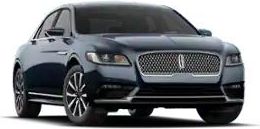
When it comes to protecting your vehicle, understanding your insurance coverage is essential. Amidst the myriad of options available, "full coverage" car insurance stands out as a popular choice for many drivers. But what exactly does "full coverage" entail? Let's delve into the specifics and uncover what this comprehensive insurance package truly includes.
Liability Coverage: Protecting Others on the Road
This coverage is a fundamental component of full coverage policies, encompassing both bodily injury liability and property damage liability. For full coverage, liability car insurance is a foundational component that ensures protection for others on the road by covering bodily injury and property damage liabilities resulting from accidents in which you are deemed at fault. It's a crucial aspect of full coverage that emphasizes the importance of protecting not just yourself but also those around you while navigating the roads.
Collision Coverage: Safeguarding Your Vehicle
One of the key features of full-coverage car insurance is collision coverage. This aspect steps in to cover repair costs or replacement of your vehicle if it's damaged in a collision with another vehicle or object, regardless of fault. Whether you accidentally hit a pole or collide with another car, collision coverage provides financial protection for repairing or replacing your vehicle, helping you get back on the road sooner.
Comprehensive Coverage: Protection Beyond Collisions
Comprehensive coverage is another vital inclusion in full coverage car insurance. Unlike collision coverage, which focuses on accidents involving other vehicles or objects, comprehensive coverage safeguards your vehicle against non-collision incidents. This includes theft, vandalism, natural disasters, falling objects, and even animal collisions.
- Vandalism: Unfortunately, acts of vandalism can occur, resulting in damages to your vehicle such as slashed tires, broken windows, or graffiti. Comprehensive coverage steps in to cover the repair costs associated with vandalism, helping you restore your vehicle to its pre-damaged condition.
- Natural Disasters: From hurricanes and tornadoes to floods and wildfires, natural disasters can wreak havoc on vehicles. Comprehensive coverage safeguards your vehicle against damage caused by such events, including flooding, hail damage, or falling debris.
- Animal Collisions: Collisions with animals, such as deer or moose, are not uncommon, especially in rural or wooded areas. These accidents can cause significant damage to your vehicle and pose safety risks for both you and the animal. Comprehensive coverage typically includes coverage for animal collisions, reimbursing you for repair costs resulting from such incidents.
Uninsured/Underinsured Motorist Coverage: Covering the Gaps
Despite mandatory insurance requirements, not every driver on the road is adequately insured. Uninsured/underinsured motorist coverage steps in to fill this gap. In the unfortunate event that you're involved in an accident with a driver who lacks insurance or doesn't have enough coverage to fully compensate you for damages, this aspect of full coverage insurance ensures that you're not left shouldering the financial burden alone.
Medical Payments Coverage: Addressing Personal Injuries
Injuries sustained in car accidents can lead to substantial medical expenses, regardless of fault. Medical payment coverage, included in full coverage policies, helps cover medical bills for you and your passengers, regardless of who's at fault for the accident. This coverage can be particularly beneficial if you don't have health insurance or have high deductibles, ensuring that necessary medical treatment isn't delayed due to financial constraints.
- Immediate Access to Medical Care: With MedPay, you gain immediate access to necessary medical care without waiting for insurance claims to be processed or for fault to be determined. This can be crucial in emergencies where prompt medical attention is essential for recovery.
- Coverage for Various Medical Expenses: MedPay typically covers a wide range of medical expenses, including but not limited to hospital bills, surgery costs, ambulance fees, X-rays, and rehabilitation services. This comprehensive coverage ensures that you and your passengers receive the necessary medical treatment without facing financial barriers.
- Supplemental Coverage for High Deductibles or Co-Payments: For individuals with high health insurance deductibles or co-payments, MedPay serves as a supplemental form of coverage, helping offset out-of-pocket expenses associated with medical care following an accident.
Personal Injury Protection (PIP): Extensive Personal Injury Coverage
Depending on the state in which you reside, your full coverage car insurance may also include personal injury protection (PIP). PIP goes beyond medical payment coverage, providing a broader range of benefits such as lost wages, childcare expenses, and funeral costs. This comprehensive coverage ensures that you and your passengers are financially protected from the aftermath of an accident, regardless of fault.

Full coverage car insurance offers comprehensive protection for you, your vehicle, and others on the road. From liability coverage to collision and comprehensive protection, along with additional features like uninsured/underinsured motorist coverage, medical payments, and personal injury protection, this insurance package provides a robust safety net in various driving scenarios.




